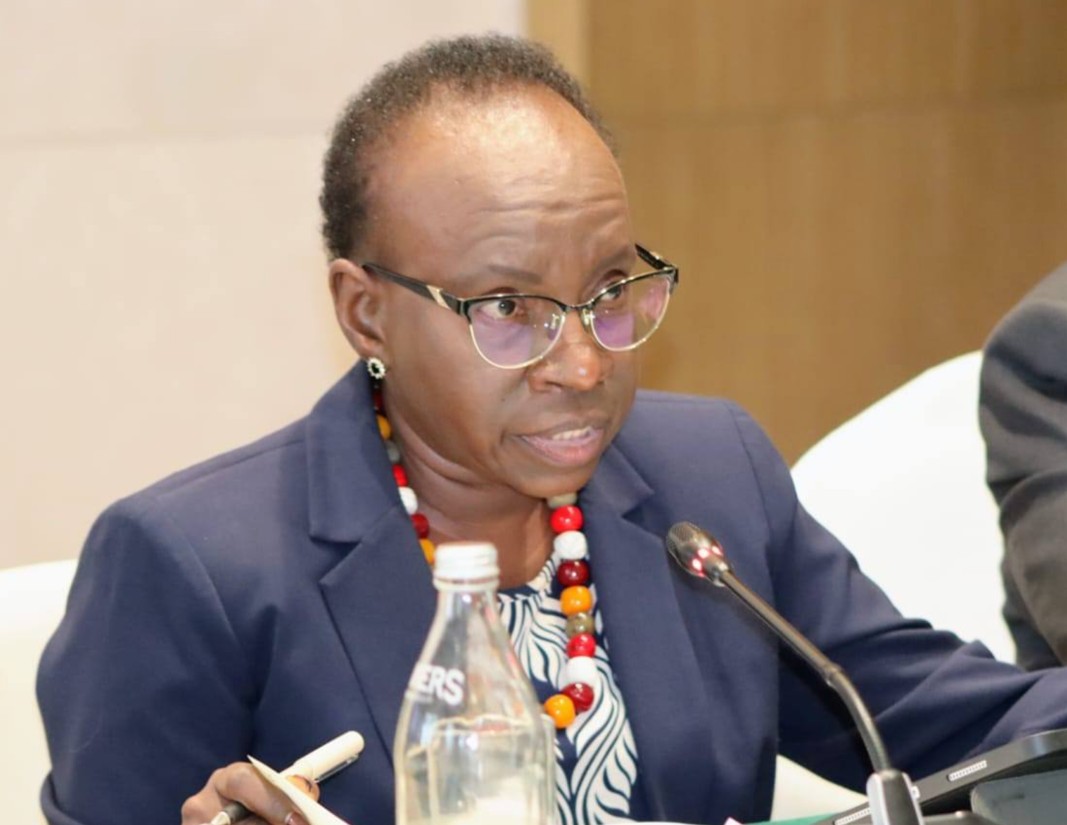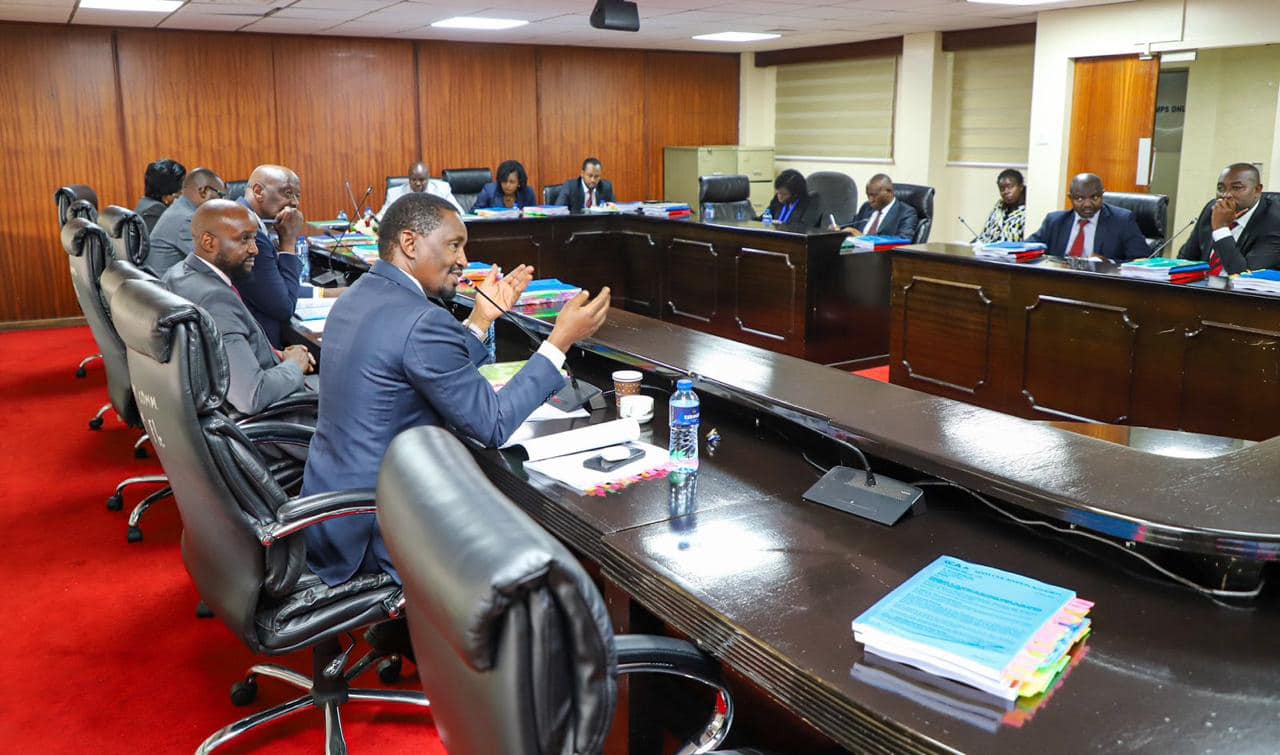Auditor General wants law changed to punish leaders ignoring audit recommendations

Gathungu said the absence of legal sanctions has allowed audit recommendations to be routinely ignored, weakening accountability and slowing progress in public sector reforms.
Auditor General Nancy Gathungu has called on Parliament to amend the Public Finance Management (PFM) Act, 2012, to introduce punitive measures against entities that fail to implement audit and parliamentary recommendations, saying this would help entrench fiscal discipline and ensure more effective use of public resources.
Speaking before the National Assembly’s Budget and Appropriations Committee, Gathungu said the absence of legal sanctions has allowed audit recommendations to be routinely ignored, weakening accountability and slowing progress in public sector reforms.
More To Read
- Ruto proposes law to allow housing levy contributors access Sh5 million loans
- MPs threaten action against CDF managers from North Horr, Moyale, Laisamis over poor records
- Taxpayers lose Sh5.7bn as govt agencies mismanage donor funds – Auditor General
- Kenyans invited to submit views on Finance Bill 2025 by May 27
- Audit flags Sh44.8bn mystery on eCitizen, exposes weak controls and vendor grip
- Kenya to make all foreign deals public in new transparency push – Mudavadi
She said the law should be amended to ensure compliance through consequences for non-implementation of recommendations made either by her office or by Parliament.
“Parliament should prioritise consideration and deliberation of performance audit reports and address the identified inefficiencies, wastefulness, and other bottlenecks to inform improved service delivery to the public and national development goals,” she said.
She further proposed that the PFM Act be amended to require public sector entities to submit financial statements to the Office of the Auditor General within one month after the close of each financial year, arguing that timely reporting is critical to maintaining transparency and improving public service delivery.
The Auditor General also urged the committee to ensure the implementation of a prior parliamentary resolution requiring the National Treasury to fund the Office of the Auditor General through a single-line budget. According to her, such a budgetary arrangement would significantly enhance the institution’s ability to respond to dynamic audit demands more efficiently.
In addition, she asked Parliament to lead national discussions on a cost-effective and standardised method of determining the value of government assets. She emphasised the need for a clear and affordable valuation process to ensure optimal management of public resources.
Gathungu also raised concerns about the country’s fiscal planning and budget implementation, highlighting systemic issues that she said could negatively affect the government’s ability to deliver on the 2025/2026 financial year’s priorities.
According to her, the annual revenue estimates project ordinary revenue at Sh2.757 trillion, representing 14.3 per cent of Gross Domestic Product (GDP). This is an increase from Sh2.581 trillion in the FY 2024/2025 supplementary budget, which stood at 14.8 per cent of GDP. However, she noted that even with this increase, the projected revenue remains below the World Bank’s recommended minimum tax-to-GDP ratio of 15 per cent.
She warned that revenue targets have consistently fallen short over the past five years, a trend that presents major fiscal risks.
“The audited revenue accountability statement by the Kenya Revenue Authority (KRA) indicated tax revenue arrears of Sh2.334 trillion as at June 30, 2024,” she said, explaining that these arrears stem from compliance reviews, tax audits, overdue annual returns, default assessments and unremitted deductions.
The Sh2.334 trillion arrears, she added, represent an increase of Sh1.334 trillion, or 133.49 per cent, from the Sh999.6 billion reported as at June 30, 2023.
“The balance includes additions in arrears that were not collected for the financial year 2023/2024 of Sh2.065 trillion. The amount of Sh2.065 trillion relating to the FY 2023/2024 is equivalent to 91.8 per cent of the total Treasury recurrent revenue collections of Sh2.250 trillion for the same period, an indication that the set targets for revenue by the Authority are way below the possible tax yield,” she told MPs.
Gathungu noted that persistent shortfalls and mounting arrears point to a structural revenue challenge and warned that the government may struggle to meet expenditure targets without increasing borrowing. She said there were clear signs of weak revenue planning and forecasting.
She urged the National Treasury to adopt a more cautious and evidence-based revenue forecasting strategy that considers historical patterns and economic risks.
“This will avoid overestimating revenue projections and ensure that expenditure commitments are aligned with realistic resource projections,” she added.
Gathungu also expressed concern over the underperformance of donor-funded projects, noting that many continued to experience low fund absorption. In FY 2023/2024, 14 donor-funded projects with a total allocation of Sh515.1 billion had failed to utilise Sh304.4 billion, representing 59.1 per cent of the total.
She said delays in implementation risk derailing project objectives.
“Some of the projects were lapsing, posing risks that the projects would end without implementing all the planned activities and therefore, not likely to meet the project’s objectives,” she told MPs.
In some cases, she added, clauses in loan agreements require the government to pay commitment fees on undrawn funds, resulting in waste.
“Between the financial year 2020/2021 and the financial year 2023/2024, the government paid commitment fees totalling Sh6.569 billion on undrawn amounts in respect of loans signed between the Government of Kenya and foreign lenders,” she said.
Gathungu urged Parliament to address these inefficiencies, enforce audit resolutions, and uphold prudent fiscal management to support national development and protect public resources.
Top Stories Today












































